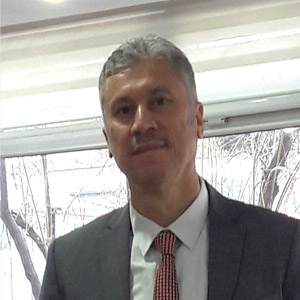Invited Speaker

Prof. Dr. Bilal Acar
University of Selcuk, Faculty of Agriculture, Department of Farm Buildings & Irrigation, TurkeySpeech Title: Is Deficit irrigation Efficient Practice for Increasing Crop Production in Water-Starved Environments?
Abstract: Water and soil are two important inputs for agro-production. Irrigation has direct effect on increasing crop production in areas having arid and semi-arid climates. There are two main irrigation programs namely full and deficit irrigation. Full irrigation is best-suited areas with sufficient water resources and maximal crop yield as well as quality can be obtained from the full irrigation. Deficit irrigation can be defined as application of water to the crops less than whole crop requirements and is suitable for particularly water shortage regions. The main target of deficit irrigation is to improve the water productivity or to obtain maximum crop production with same amount of water application. Deficit irrigation can be performed different forms such as reducing water application for crops, widening irrigation intervals, and none irrigation in some crop vegetation cycles. One of the most important issues in deficit irrigation program is to have sufficient information about Water-Yield-Relationships of growing crops. In this paper, we examined the deficit irrigation studies in both Turkey and world general with detail. In accordance of our studies performed at Turkey, 75% of full irrigation had no significant yield reduction comparison to the full irrigation so up to 25% deficit irrigation can be recommended for arid and semi-arid regions. In result, more areas can be brought under irrigation with same amount of water applications by deficit irrigation comparing full irrigation. Deficit irrigation is a friendship practice for conservation of the natural resources such as water resources.
